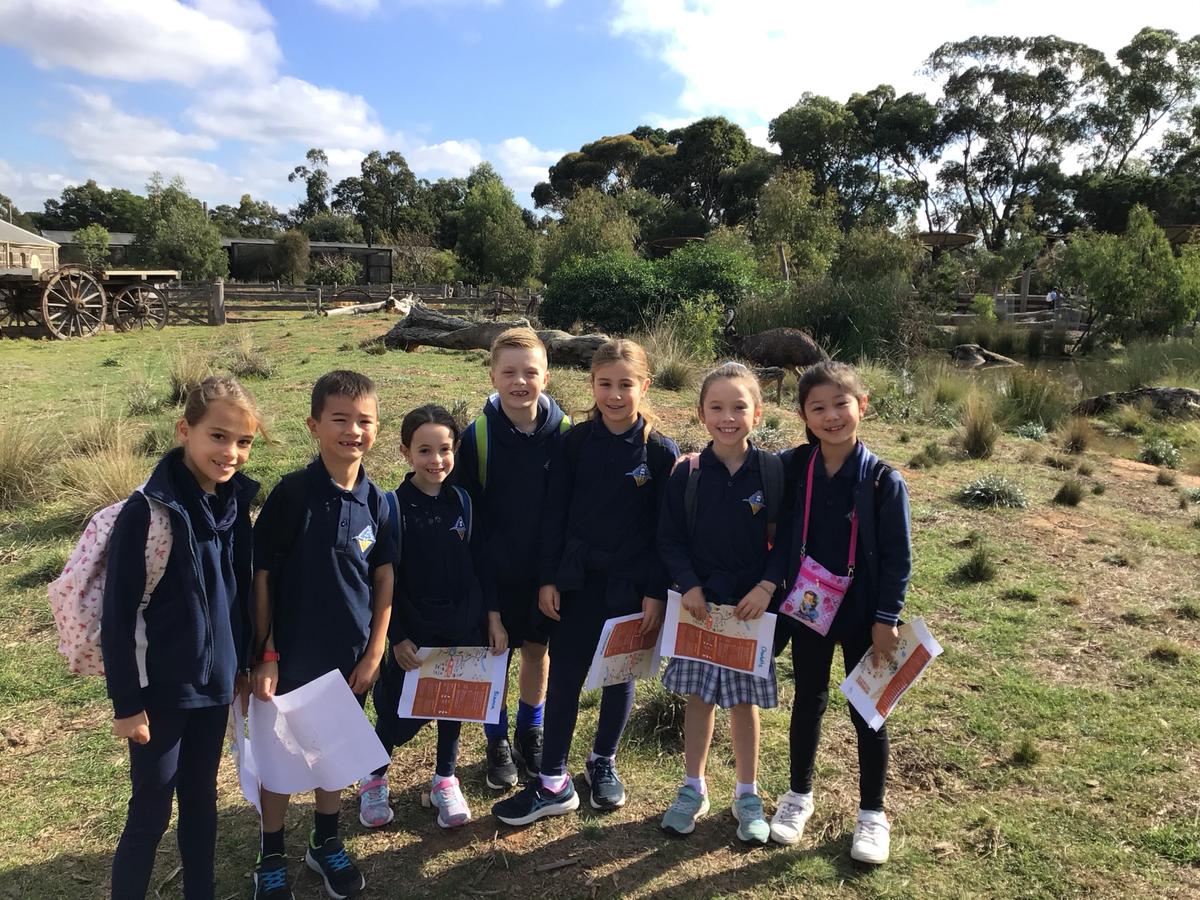Grade 2 Fortnightly Snapshot
Term 2 Weeks 3 and 4

Grade 2 Fortnightly Snapshot
Term 2 Weeks 3 and 4
Dear Parents and Carers
Welcome back to Term 2! It has been wonderful to see the children after a refreshing break, ready for a busy term of learning.
The highlight of our fortnight so far has been our trip to Werribee Zoo. Students were able to engage in our Unit of Inquiry, as well as put mathematics skills to the test by guiding themselves around Werribee Zoo using a map.
In reading, students will read non-fiction information texts. Students will use the knowledge they have gained to identify non-fiction texts and their key features such as headings, contents page, index page, glossary, diagrams and maps. They will be using these texts as well as websites to assist their research about animals and their habitats in our next Unit of Inquiry.
In word study, we will continue "boot camping" using the reading and spelling tools. Students have been learning about capital letters, as well as /c/ and /g/ making their second sound if they are followed by /e/, /i/ or /y/. The boot camps include a focus on handwriting and segmenting or blending sounds for reading and writing. The next rule students will be focusing on is silent final e.
Learning the codes will help students with their reading and spelling. Here are links to videos where students can see, say and hear the codes.
Students are writing an information report on an animal of their choice. They have learnt how to take notes from their reading of animal facts, sort their facts into categories and write descriptive sentences. They will include subheadings based on the categories they used for sorting. They will be guided on how to revise, edit and publish their work.
They have learnt to use adjectives and commas when listing items in a sentence, e.g. The manta ray has a big mouth, tiny eyes and huge fins.
Students will also write a Werribee Zoo recount.
In preparation for our zoo excursion, the students learnt about how to give and follow directions, read simple maps and use a key. They then applied this knowledge when using the zoo map at the Werribee Zoo. Next week we will begin learning about categorising and interpreting a range of data displays. Students will need to put this skill to use while researching animals and interpreting data displays in non-fiction books.
How the World Works: Living things are connected to their environment.
At the conclusion of our unit, students are to create a diorama of the habitat of their chosen animal and talk about how it is connected to its habitat.


In the classroom, we have continued to use strategies learnt from our previous unit to discuss emotions and consider how friends are feeling.
As we enter the ‘cold and flu season’, please continue to use Covid safe practises. Students will need to stay home and get tested if they have any symptoms. We will continue to remind students to wash and sanitise hands regularly.
Use the links in this newsletter to go to the codes videos and check the Student Planner for the weekly homework.
Students will need to read their decodable book each night. Mathletics tasks have also been assigned.
Wed 28th April - Excursion to Werribee Open Range Zoo.
Friday 30th April – Mother’s Day Stall
2A Angie Fifer
2B Maddy Long
2C Breallen Cole
2D Angela Alderuccio